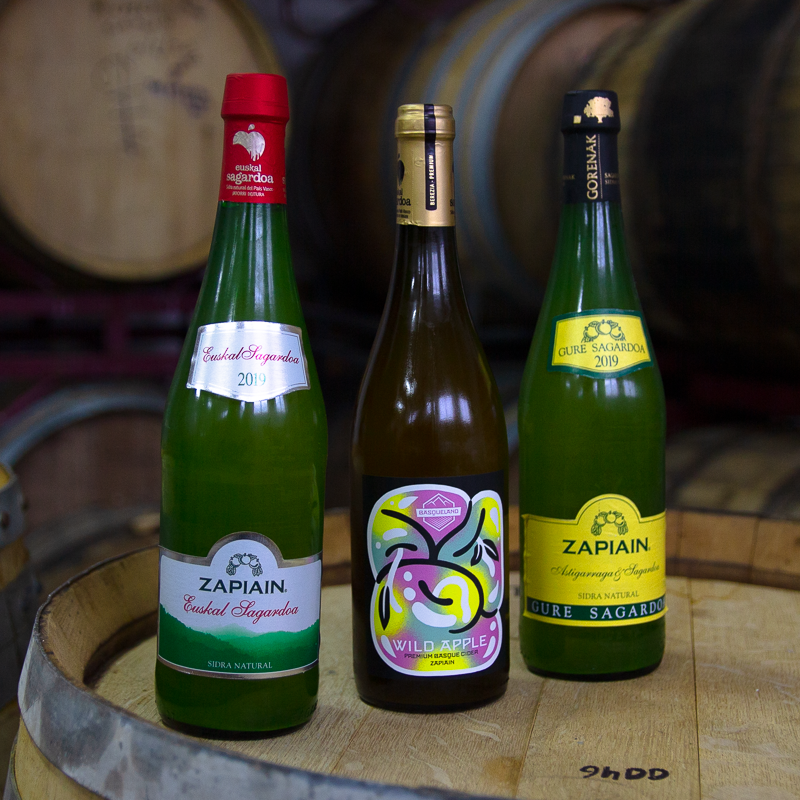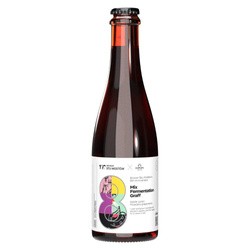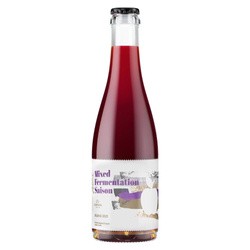Add products by adding codes
Zapiain Sagardoa: the cyder legacy of the Basque Country

The history of Zapiain Sagardoa, hailing from the Basque Country, dates back to the 16th century. This is evident from historical documents that trace the sale of the first apple orchard within the Zapiain family. Since then, their cyders, a result of centuries of perfecting recipes, have become available on our website, in our e-store.
Although surprising, the surge in the popularity and production of cyder in the Basque Country was directly linked to the pioneering whaling industry. Basques embarked on voyages to far-off lands like Newfoundland, Norway, and Iceland. In medieval times, water was hardly a safe beverage, often harbouring health-threatening microorganisms. Wine, prevalent back then, was reserved for ship officers, leaving cyder for the sailors. It is said that due to its relatively high vitamin C content, cyder consumption prevented sailors from illnesses like scurvy. The profitability of whaling tempted many sailors, including members of the Zapiain family.
In the 16th century, cyder became an investment tool in companies involved in whale hunting. Investors received barrels of whale oil in return for supplying ships, mainly used as lighting fuel. Thanks to this resource, Europe was literally "illuminated," and the Basques reaped significant economic benefits.
Unfortunately, the industrial revolution brought environmental degradation, including the seas and oceans. Excessive exploitation of whale species led to a drastic decline in their numbers. Consequently, in 1947, the International Convention for the Regulation of Whaling was established, and by the mid-1960s, all countries withdrew their fleets from Antarctic waters.
Zapiain Sagardoa, in its current form, was established in 1961 when Roxario Zapiain decided to dedicate himself entirely to cyder production, relinquishing other economic activities, including farming and agriculture. A few years later, Basque cyder experienced a regression, during which the Zapiain family accounted for half of the total production in the Basque Country.
The heart of this cyder house undeniably lies in its apples, sourced from both the family orchard and friendly producers. Apple varieties have been carefully selected over centuries, specifically for the production of exceptional sagardoa, and they continue to be used in the Zapiain cyder house. The unique geography of these lands, with mountains, hills, and steep slopes, makes apple cultivation a labor-intensive task, practically excluding the use of mechanized machines.
This endeavour demands significant effort and is still performed manually, known as the "heroic cyder culture." Apple harvesting takes place in early autumn, contingent on the ripeness of the fruits. The optimal moment of harvest is critical to achieving a high-quality product, which is determined through various maturity tests, such as starch regression tests or the use of a refractometer.
A bottle of Zapiain Sagardoa is a result of accumulated knowledge passed down through generations, and its flavor is best enjoyed at a temperature of 10-12ºC. Before opening the bottle, it is recommended to gently shake it to dissolve the natural sediment and release the natural carbon dioxide it contains. This unique cyder is a true gem among its peers, one that deserves to be discovered and appreciated.
Recommended

Browar Stu Mostów x Zapiain: 8th Anniversary Mixed Fermentation Graff - 375 ml bottle


